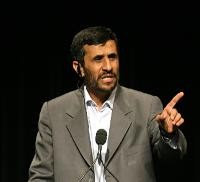In early August, at the fourth trilateral summit between Iran, Afghanistan and Tajikistan held in Tehran, Iranian President Mahmoud Ahmadinejad urged the leaders of the other two countries to join in an alliance to counterbalance NATO's growing presence in Central Asia. Though any such formal alliance is unlikely, the declaration reflects Tehran's desire to play a larger role in Central Asia's regional dynamics.
If Iran has always been geographically part of the regional context of Central Asia and the Caucasus, Tehran's geopolitical orientation has historically been focused southward, on the Persian Gulf. For more than a century, Iranian interests in the area were limited to dealing with Russia's -- and later the Soviet Union's -- expansionism. The end of the Cold War and the implosion of the Soviet Union opened new opportunities on Iran's northern borders, even if Iran remained more preoccupied with the need for domestic reconstruction following the war with Iraq.
In the past 15 years, however, Tehran has been particularly active in trying to create a deep net of institutional and economic links in the region, in part to counter the increasing reach of Turkey, perceived as an American proxy, and of Pakistan, historically an enemy of Iran. Such an approach has been characterized by the "pragmatism" typical of Iran's post-revolutionary leadership. Eschewing the idea of exporting revolution, Iran has instead tried to improve ties with all the countries of the region, focusing on those with which it shares cultural and historical links. This explains the strong attention paid by Tehran to Tajikistan and Afghanistan, which represent cornerstones of the Iranian strategy in the region. At the same time, a clear example of Iran's pragmatism is the close relationship it has forged with Armenia, cemented by the common interest of containing Azerbaijan.

